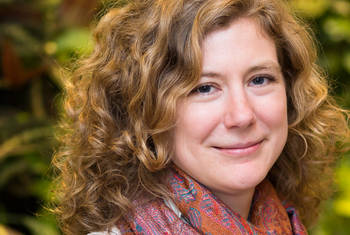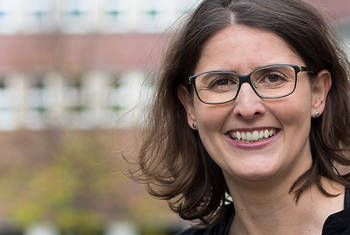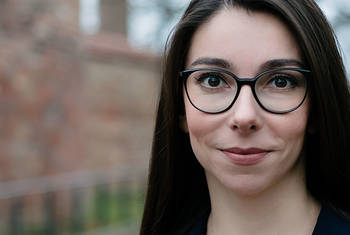Effrosyni Adamopoulou Why do Individuals Overconsume Unhealthy Foods?
Effrosyni (Efi) Adamopoulou is a postdoctoral researcher in the Department of Economics at the University of Mannheim. On leave from her position as an economist at the Bank of Italy, Adamopoulou completed her PhD at Universidad Carlos III de Madrid. Adamopoulou’s main research interests include labor economics, family economics, applied econometrics and macroeconomics. Recipient of the 2012 Young Labor Economist Prize from the European Association of Labor Economists, Adamopoulou was awarded a Seal of Excellence from the European Commission in 2020.
Area of Research
Family Economics
since 2018
Researcher
University of Mannheim (Universität Mannheim) (more details)
since 2019
External Lecturer
European Business School, Oestrich-Winkel
since 2013
Economist (DG for Economics, Statistics and Research)
Bank of Italy (on Leave)
since 2016
Research Affiliate
Institute of Labor Economics (IZA)
2017-2017
Secondee (External Work Experience)
Bank of Spain
2012-2013
Research Fellow (DG for Economics, Statistics, and Research)
Bank of Italy
2009-2012
Teaching Fellow
Universidad Carlos III de Madrid
2008-2013
Ph.D. in Economics
Universidad Carlos III de Madrid
2010-2012
Visiting Ph.D. student
Universitat Autònoma de Barcelona
2006-2008
M.Sc. in Economics
Universidad Carlos III de Madrid
2003-2005
M.Sc. in Economics
Athens University of Economics and Business
1999-2003
B.A. in Economics
University of Patras
- Economic Journal
- Journal of Population Economics
- Economics Bulletin
- Centre for Economic Policy Research - W&I List (since 2020)
Prizes
- Seal of Excellence from the European Commission (2020)
- Outstanding Teaching Award, Universidad Carlos III de Madrid (2012)
- Young Labour Economist Prize, European Association of Labour Economists (2012)
Fellowships
- Global Labor Organization (since 2020)
- Research Fellowship, Bank of Italy (€ 48,000, 2012-2013)
- Mobility Research Grant, Universidad Carlos III de Madrid (2012)
- Travel grant, Annual Workshop of the NBER Group on Micro and Macro Perspectives on the Aggregate Labor Market (2011)


University of Mannheim (Universität Mannheim)
Mannheim, GermanyFor generations, the University of Mannheim has been preparing students to take on leadership roles in business, academia, and society. One of the university’s strengths in this task is its profile, which is characterized by the economic and social sciences. It is in these fields that the University of Mannheim has repeatedly been ranked as one of the top 20 European research institutions. Key focuses of Mannheim researchers include decision-making processes and elections, governance, regulation, competition and innovation, migration and multilingualism, and the culture of change. The campus surrounding Mannheim’s baroque palace is a place where bright minds from across the globe come together to learn, discuss, research, and prepare to make their mark on the world.
Institute
The Collaborative Research Center (CRC) TR 224 – EPoS
The Collaborative Research Center (CRC) TR 224 – EPoS is a cooperation between the University of Bonn and the University of Mannheim. Funded by the German Research Foundation (DFG), it aims to analyze and provide policy proposals that address three key societal challenges: how to promote equality of opportunity; how to regulate markets in light of the internationalization and digitalization of economic activity; and how to safeguard the stability of the financial system.
Map
Is there a link between scarcity of food in early life and later overconsumption? In this video, EFFROSYNI ADAMOPOULOU focuses on the behaviors of individuals who experienced meat scarcity as children in Italy during World War II. Drawing on data revealing the availability of meat during the war and employing a difference-in-difference framework, Adamopoulou arrives at a number of striking findings. Not only does the temporary scarcity of meat in early life increase the probability of later overconsumption, but this behavioral effect also persists to the next generation. Highlighting the role that gender plays in this dynamic, Adamopoulou’s research demonstrates that policymakers need to give greater consideration to behavioral mechanisms and their long term effects.
LT Video Publication DOI: https://doi.org/10.21036/LTPUB10912
Eating Habits: The Role of Early Life Experiences and Intergenerational Transmission
- Effrosyni Adamopoulou, Elisabetta Olivieri and Eleftheria Triviza
- Published in 2021









